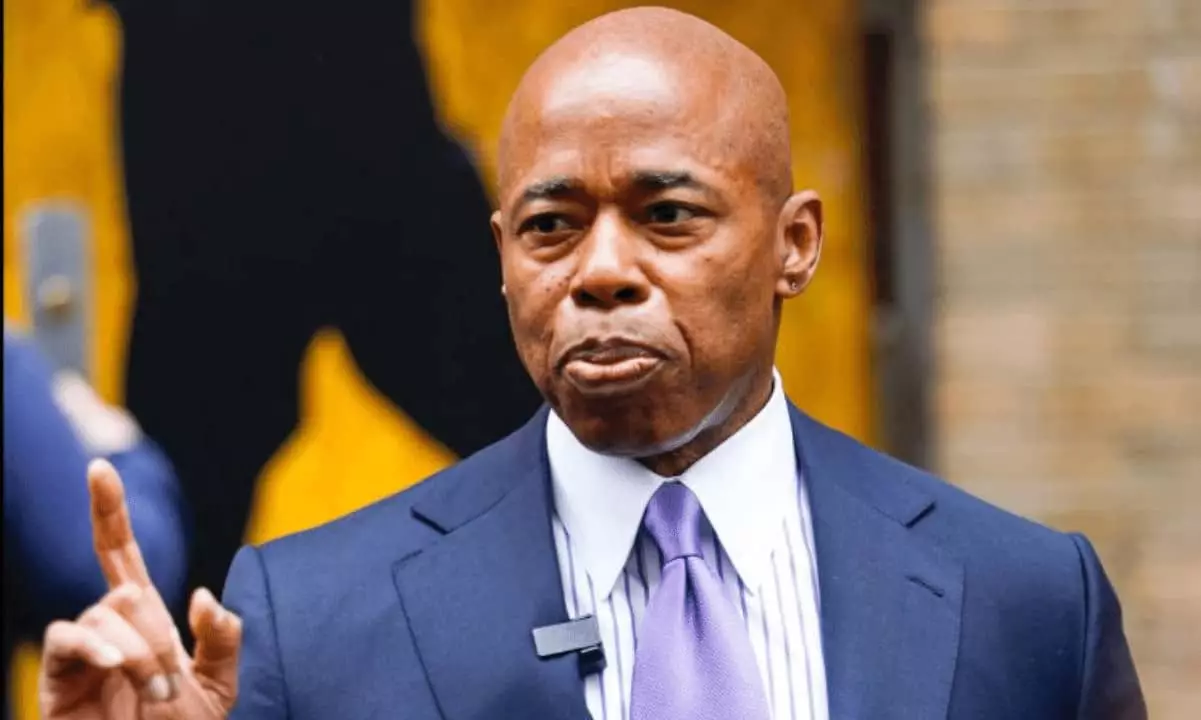In a stunning turn of events, New York City Mayor Eric Adams finds himself embroiled in a high-profile corruption investigation that has led to significant fallout within his administration. The recent indictments have raised serious questions about the integrity of his leadership and are indicative of a broader pattern of alleged misconduct involving key officials in his administration. As the investigation unfolds, it has prompted both resignations and retirements among several high-ranking officials, further complicating the political landscape of the city.
While the specific charges against Adams remain sealed and undisclosed, reports suggest that the investigations began gaining traction when the FBI executed a raid on the home of Brianna Suggs, his chief campaign fundraiser. This raid formed part of a larger inquiry into potentially illicit donations made to Adams’ mayoral campaign by individuals ostensibly affiliated with the Turkish government. The ramifications of these investigations are substantial; they unveil a concerning connection between public office and foreign influence, a narrative that holds implications not merely for Adams, but also for the public’s trust in elected officials.
The indictments do not stop at the mayor alone. The case has broadened to include the arrests of former officials from the New York City Fire Department, Anthony Saccavino and Brian Cordasco. Accused of accepting over $190,000 in bribes aimed at securing favorable treatment during building inspections and approvals, their actions have exposed systemic vulnerabilities within city agencies. The allegations against them highlight a disturbing trend in corrupt practices that involve manipulation of regulatory frameworks for personal gain, raising the critical question of how widespread such malfeasance might be in urban administrative practices.
Moreover, it has been alleged that Adams exerted pressure on city officials to permit the construction of a monumental Turkish consulate in Manhattan, despite voiced safety concerns. This pressure illustrates a potential conflict of interest, where personal or political relationships might compromise the safety and wellbeing of city residents.
Mayor Adams has reacted to the unfolding crisis with a defiant spirit. He has publicly declared his intention to adhere to his duties as mayor and fight any charges that may arise against him. With statements asserting his innocence, Adams has positioned himself as a victim of circumstance rather than an individual who engaged in unethical practices. Despite the weight of the allegations, he has expressed confidence in his legal team’s findings, which reportedly cleared him of any unlawful behavior.
The mayor’s pledge to remain in office amidst the rising pressure reflects not just personal resolve, but also the challenges of leadership in a politically charged environment. His assertion that the investigations are baseless begs an examination of the relationship between political fortitude and accountability.
Another layer to this complex narrative is Adams’ prior commitment to promote New York City as a hub for cryptocurrency innovation. His unusual move to accept his first paychecks in Bitcoin and Ethereum was tantamount to a bold future-oriented vision, positioning him as a pioneer among modern political leaders. However, such enthusiasm for emerging technologies has come with its own set of complications.
In July 2023, Adams faced scrutiny for failing to disclose his cryptocurrency holdings, an omission that raised ethical questions about transparency and accountability. His administration’s continued defense of blockchain technology as a transformative tool for enhancing government functions presents a dichotomy; while the tech holds promise, the relationship between its promotion and the potential for unethical dealings cannot be overlooked.
Additionally, Adams’ advocacy for reforming New York’s stringent BitLicense regulations speaks to a broader ideological conflict. He argues that such regulations stifle the growth of the cryptocurrency industry within the state, yet his personal entanglements in these controversies juxtapose his public campaigns and raise critical questions about motives and governance.
The unfolding narrative of Eric Adams is emblematic of the complex challenges facing leaders in the public sector—challenges that often interlace ethical practices, accountability, and public trust. As investigations continue and potential indictments loom, the future of his administration hangs in the balance. The repercussions of this situation extend beyond Adams himself, affecting constituents and the broader political environment in New York City. The developments in the coming weeks will either reaffirm or dismantle his vision for a strong, transparent leadership doctrine, and the extent of their impact will be watched closely by both supporters and detractors alike.

